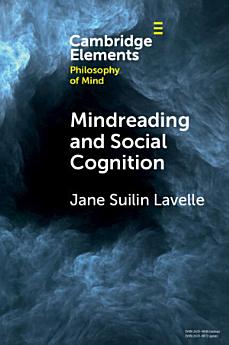Mindreading and Social Cognition
ফেব্ৰু ২০২২ · Cambridge University Press
ইবুক
143
পৃষ্ঠা
reportমূল্যাংকন আৰু পৰ্যালোচনা সত্যাপন কৰা হোৱা নাই অধিক জানক
এই ইবুকখনৰ বিষয়ে
The cognitive ability to think about other people's psychological states is known as `mindreading'. This Element critiques assumptions that have been formative in shaping philosophical theories of mindreading: that mindreading is ubiquitous, underpinning the vast majority of our social interactions; and that its primary goal is to provide predictions and explanations of other people's behaviour. It begins with an overview of key positions and empirical literature in the debate. It then introduces and motivates the pluralist turn in this literature, which challenges the core assumptions of the traditional views. The second part of the Element uses case studies to further motivate the pluralist framework, and to advocate the pluralist approach as the best way to progress our understanding of social cognitive phenomena.
এই ইবুকখনক মূল্যাংকন কৰক
আমাক আপোনাৰ মতামত জনাওক।
পঢ়াৰ নির্দেশাৱলী
স্মাৰ্টফ’ন আৰু টেবলেট
Android আৰু iPad/iPhoneৰ বাবে Google Play Books এপটো ইনষ্টল কৰক। ই স্বয়ংক্রিয়ভাৱে আপোনাৰ একাউণ্টৰ সৈতে ছিংক হয় আৰু আপুনি য'তে নাথাকক ত'তেই কোনো অডিঅ'বুক অনলাইন বা অফলাইনত শুনিবলৈ সুবিধা দিয়ে।
লেপটপ আৰু কম্পিউটাৰ
আপুনি কম্পিউটাৰৰ ৱেব ব্রাউজাৰ ব্যৱহাৰ কৰি Google Playত কিনা অডিঅ'বুকসমূহ শুনিব পাৰে।
ই-ৰীডাৰ আৰু অন্য ডিভাইচ
Kobo eReadersৰ দৰে ই-চিয়াঁহীৰ ডিভাইচসমূহত পঢ়িবলৈ, আপুনি এটা ফাইল ডাউনল’ড কৰি সেইটো আপোনাৰ ডিভাইচলৈ স্থানান্তৰণ কৰিব লাগিব। সমৰ্থিত ই-ৰিডাৰলৈ ফাইলটো কেনেকৈ স্থানান্তৰ কৰিব জানিবলৈ সহায় কেন্দ্ৰত থকা সবিশেষ নিৰ্দেশাৱলী চাওক।




